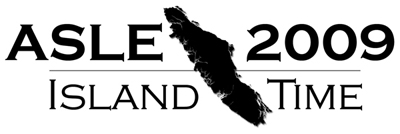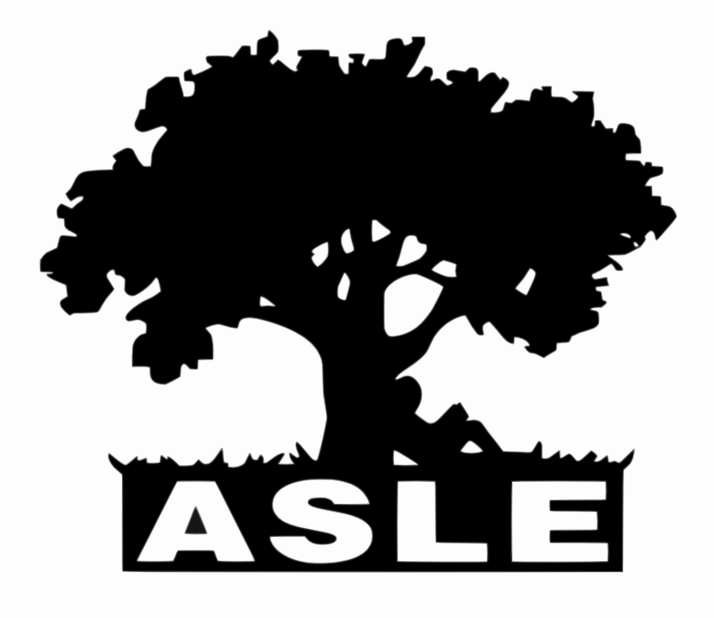|
We are pleased to announce a range of field trips for the afternoon of Friday, June 5.
The description of these events is
below, along with a description of post-conference day-long field trips
scheduled for Sunday, June 7. Please register for field
trips at the same time as you register for the conference!
Bus transportation will be provided for all events. Based on preferences
expressed from previous ASLE conferences, school bus will be used for short
trips (mostly the volunteering ones), and coaches will be used for longer
trips.
If a field trip fills up, consider sending an email to ASLE asking to be put on
a waitlist. If enough people join a waitlist, we will set up a similar trip for
the waitlisted group.
Finally, if none of these trips stand out for you, there are plenty of
self-guided options in Greater Victoria: new and used bookstores in the downtown
area; a Saanich Peninsula winery tour; the Royal BC Museum (possibly including
Wawaditla or Emily Carr House), and its North American premiere of the traveling
exhibition “Treasures: The World’s Cultures from the British Museum”; and all
kinds of other possibilities. Feel free to personalize your conference
experience!
Friday Events (afternoon)
-
Volunteering: environmental and social justice projects.
For the first time, ASLE is offering attendees to chance to volunteer with
local environmental and social justice organizations. It is difficult to
predict how many people will sign up for these, however, and activities in
such organizations change depending on urgent need. Therefore, we will be
providing a range of options to registrants once conference registration
closes on April 15, rather than offering specific options now. (Cost: free.
Difficulty: variable) Options are likely to include:
- eelgrass ecosystem restoration at Tod Inlet
- Garry oak ecosystem restoration at Mount Douglas
- stream-keeping at Bowker Creek or Douglas Creek
- administrative volunteering with the Western Canada Wilderness Committee
(including an informational lecture)
- administrative volunteering with PEERS, the Prostitution Empowerment and
Education Resource Centre
-
First Nations history.
Southern Vancouver Island
is within the traditional territory of the Coast Salish and Straits Salish
peoples. At Snitcel (Tod Inlet, part of what is now Gowlland Tod Provincial
Park), a representative of either the Tsawout or Wsa,nec people will lead an
information session about place and local Aboriginal history, touching on
issues of traditional ecological knowledge. (Cost: $25 per person.
Difficulty: easy)
-
Birding.
Members of the Victoria Natural History
Society will lead a four-hour birding excursion, which will follow whatever
is happening at the time in Victoria. Probable destinations will include
Francis-King Park and one or more beaches. Victoria is one of the few North
American locations for the increasingly rare Sky Lark, so seeing this
species will be a focus for the excursion. (Cost: $15 per person.
Difficulty: easy)
-
Whale watching.
ASLE member David Rothenberg will
lead a three-hour whale-watching tour with Spring Tide Charters, including
using a hydrophone to listen to whale vocalizations. While the primary
resident whales are Orcas, these trips regularly see other species, too, as
well as a variety of pinnipeds ranging from harbour seals to sea lions.
(Cost: $115 per person. Difficulty: easy)
-
Butchart Gardens & bus tour of city.
Victoria’s most popular tourist attraction is without question Butchart
Gardens, a 55-acre site in a former limestone quarry on Tod Inlet. The
garden’s range of species is broad, and the depth of its holdings among
individual species is impressive as well: among roses, for example, there
are 117 tea rose varieties, 64 floribunda types, and 400 grandiflora roses.
After 90 minutes at this remarkable place, your bus driver will lead you on
a guided tour around Victoria, offering background about the natural and
cultural history of the region. (Cost: $65 per person. Difficulty: easy)
-
Goldstream naturalist excursion.
BC Parks Service
naturalists will lead two 30-person walks through Goldstream Provincial
Park, most of which is an example of the temperate coastal rainforest biome.
The naturalist will talk about keystone species in the region (such as
salmon, Western red cedar, plants, and birds) as well as rarer species.
After the naturalist walk, attendees will have the option of returning to
town, or walking some the park’s numerous trails while waiting for the
hiking group to descend Mount Finlayson. (Cost: $20 per person. Difficulty:
easy – mostly flat, though you can make it more difficult if you wish)
-
Mount Finlayson hike NOW FULL - see option 12.
A trailhead in Goldstream
Park leads to Mount Finlayson, one of the highest points in southern
Vancouver Island. The summit offers a broad 360-degree view of the entire
region. During the climb you’ll pass through several distinct ecosystems,
from coastal rainforest into drier Douglas fir, Garry oak, and arbutus
forests. This is a steep climb, gaining approximately 400 metres of
elevation in slightly over a mile of trail, and proper footwear is
essential. (Cost: $20 per person. Difficulty: challenging – 3 hours,
considerable elevation change)
-
East Sooke Park hike – difficult.
East Sooke Park
is the largest park in southern Vancouver Island. Among its more than 50 km
of trails is the spectacular 10 km Coast Trail, considered one of the
premier day hikes in Canada. Your hike will begin at Anderson Cove, climb
over Babbington Hill, and descend to meet the Coast Trail. You will then
follow the Coast Trail south along the water’s edge to Aylard Farm. (Cost:
$30 per person, incl. box lunch and dinner. Difficulty: strenuous, a 4- to
5-hour hike)
-
Sooke region highlights.
After dropping off
hikers at East Sooke Park, you will carry on to visit a few sites in the
rural Sooke region, including a mead tasting at Tugwell Farm Meadery; a walk
at French Beach; and a naturalist’s talk at Whiffin Spit. (Cost: $30 per
person, incl. box lunch and dinner. Difficulty: easy)
-
Ocean kayaking.
Pacifica Paddling’s “Oak Bay
Coastal Explorer” kayak excursion is the perfect tour for all levels of
paddlers who want to experience the coastal wildlife and landscapes of
picturesque Victoria. Local wildlife includes regular sightings of seals,
bald eagles, black oyster catchers, cormorants, surf birds, buffleheads,
heron and an amazing amount of inter-tidal life. (Cost: $55 per person.
Difficulty: moderate, no kayak skills required)
-
Cycling.
We will offer group cycling trips rides
through Cycle Trek Tours, some with professional guides, all offering
bicycles and all necessary equipment (except for clothing). Victoria is a
beautiful location for cycling! Several tour options will be available, and
registrants will be able to choose among them right up until check-in at the
conference. (Cost: $55 per person. Difficulty: variable, depending on
option) Possible options include:
- West Coast Adventure (50 easy km on the Galloping Goose Trail, from
trail’s end at the Sooke Potholes back to downtown Victoria)
- Lochside Trail (36 easy kms on the Galloping Goose Trail, from Sidney –
a booktown on the Saanich Peninsula – back to UVic)
- tasting Victoria Gin, BC’s only hand-crafted premium gin, at Barking Dog
Vineyard (Vancouver Island’s first certified organic vineyard)
- touring Oak Bay and Victoria, including a walk through Abkhazi
Gardens
-
Mount Wells hike.
Now that the Mount Finlayson hike is full, we have added a similar but
slightly easier hike up Mount Wells, on the opposite side of Goldstream
Park. Departing from a trailhead near the Humpback Reservoir, the Mount
Wells trail takes you to a 352m summit with sweeping views of Juan de
Fuca Strait, Victoria and the Sooke Hills. The trail climbs through
Douglas-fir forest and sensitive Garry oak ecosystems to open rocky
hilltops dotted with arbutus trees, hairy manzanita and a mosaic of lush
mosses. This is a steep climb in parts, so proper footwear is important.
(Cost: $20 per person. Difficulty: moderate to strenuous – 2 hours,
considerable elevation change)
Sunday Events (day-long)
-
Walbran Valley bus trip and hike (approx. 12 hours; $45,
with meals to be purchased en route)
The Western Canada Wilderness Committee will lead a full-day bus tour to
the 13,000-hectare Walbran Valley, a three-hour drive from Victoria, home to
Canada’s most spectacular and diverse stands of ancient trees.
The Walbran is located south of the Carmanah Valley, adjacent to the West
Coast Trail. The 7500-hectare Upper Walbran Valley is unprotected (and is
currently being logged), while the Lower Walbran Valley and part of the West
Walbran Valley lie within the Carmanah Walbran Provincial Park. The Walbran
contains perhaps the most geographically extensive stand of cathedral-like
ancient red cedars, the Castle Grove – currently unprotected. Incredible
stands of giant Sitka spruce lie within the protected part of the West
Walbran Valley, and a few giant ancient Douglas firs can also be found in
the valley.
The Carmanah Walbran has become famous not only because of the immense size
of its old growth trees – including the 95m (313 ft) Carmanah Giant, and the
Castle Giant red cedar, almost 5m (16 ft) in diameter – but also because of
the endangered marbled murrelet, a bird that requires old growth forests and
high cliffs in which to build their nests.
Because of the length of this trip, anyone registering for it should not
plan to leave Victoria on Sunday, June 7.
-
Saltspring Island (approx. 8 hours, $65, incl. lunch)
This bus tour will look at the natural and cultural history of the Gulf
Islands, particularly protected and threatened natural areas, the history of
different ethnic groups in the region (particularly Japanese-Canadian,
Hawaiian, and African-American settlers), and the Gulf Islands’ history as a
surviving outpost of the 1960s.
Highlights of this trip will include walks through a Garry oak reserve and
heritage farms, viewing opportunities from Mount Maxwell, and time with the
Japanese Garden Society (which is building the Heiwa Peace Park, in part as
a memorial of the internment of Japanese-Canadians during the Second World
War).

|
|
|



